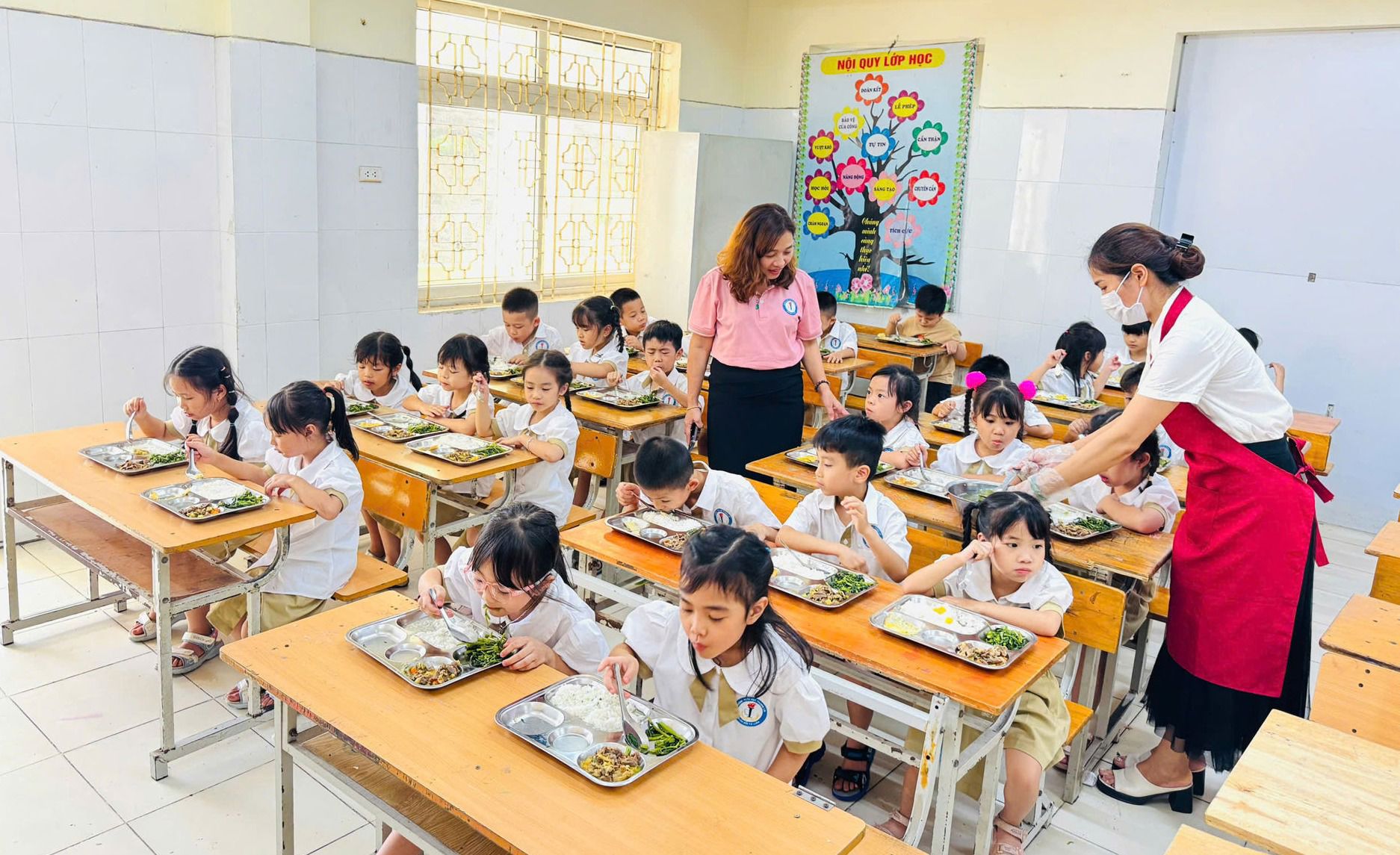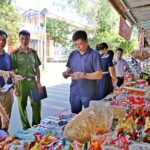Collective kitchens must be designed and arranged according to a one-way principle: 100% of food must have contracts, invoices, and legal documents; processing and preservation processes must strictly implement the “three-step food inspection”… These are the requirements of the Hanoi Department of Education and Training to strengthen management and ensure food safety.
In a document sent to cultural and social departments of wards and communes; affiliated units and schools regarding strengthening food safety (FS) work for the 2025-2026 school year, the Hanoi Department of Education and Training detailed several tasks and requirements that units must strictly implement.

Specifically, the Department of Education and Training requires promoting propaganda work, regularly updating knowledge about food safety and school nutrition through training classes, conferences, seminars, and specialized topics for staff, teachers, employees, parents, and students. Additionally, organizing extracurricular activities, competitions, integrating into suitable subjects about food safety, reasonable nutrition, building habits of choosing safe food for students; guiding students to practice personal hygiene, washing hands with soap and clean water before eating; organizing communication about food safety work to teachers, students, and parents through various forms.
Collective kitchens must be designed and arranged according to a one-way principle: receiving raw materials area – preliminary processing – processing – meal portioning – sample storage. There must be insect screens on doors and windows; separate handwashing and sanitation areas for staff, teachers, employees, and students; ensuring sufficient clean water for eating and processing according to the Ministry of Health’s standards.
The Department of Education and Training clarified: 100% of food must have contracts, invoices, and legal documents; clearly stating origin and source; only importing food from establishments with food safety certification or production and business establishments that have product announcements as regulated; absolutely not using food of unclear origin, expired, or spoiled.
According to the document, processing and preservation processes need to strictly implement “three-step food inspection,” including: checking input materials, checking during processing, and checking before use. Implementing food sample storage according to guidelines; processing and storage utensils must be separate for raw and cooked food; having storage cabinets for preserving cooked food and raw materials.
100% of kitchen staff and canteen employees must have food safety knowledge certification and periodic annual health check papers; fully implementing protective clothing as regulated. The supplying unit must have food safety condition certification, clear contracts, invoices, and documents proving food origin. Units signing contracts with meal providers must assess food safety conditions. Contracts must clearly state legal responsibilities if food poisoning occurs or unsafe food is provided.
Regarding monitoring work, each unit must establish a food safety working group/team, led by the unit head (or deputy head) as the team leader; specifically assigning staff, teachers, and employees to coordinate with parents in checking input food, monitoring processing steps, sample storage…; developing operating regulations, periodic and unexpected inspection schedules within the unit.
Units need to strictly implement daily financial disclosure, publicize menus, and the origin of food used in kitchens and canteens. Encouraging schools to cooperate with Parent Representative Boards to participate in monitoring disclosure work, aiming to increase transparency and create consensus among parents.
People’s Committees of wards and communes are responsible for inspecting, evaluating, assessing, and selecting food and raw material suppliers according to the guidance of the Food Safety Steering Committee and City departments and sectors.
Ward and commune Cultural and Social Departments along with functional agencies organize guidance, inspection, and monitoring of boarding organization work at units and schools; controlling food origin, managing food service activities around school gates; promptly handling or advising on handling when there is a risk of food safety incidents. When a food safety incident occurs, educational institutions must immediately report to ward/commune People’s Committees and health authorities; simultaneously organizing first aid, containment, and preserving food samples for investigation.
School principals are fully responsible for food safety at their units; if violations or food poisoning occur, they must take responsibility according to legal regulations. School heads direct the development of annual food safety plans, assign responsible staff, issue internal inspection and monitoring regulations; arrange funding and facilities from budget and other legal sources as regulated; fully store records, documents, and food safety minutes.
School heads need to organize strict implementation of evaluating and inspecting food suppliers (including drinking water, milk, and dairy products), raw materials, and boarding meals for






